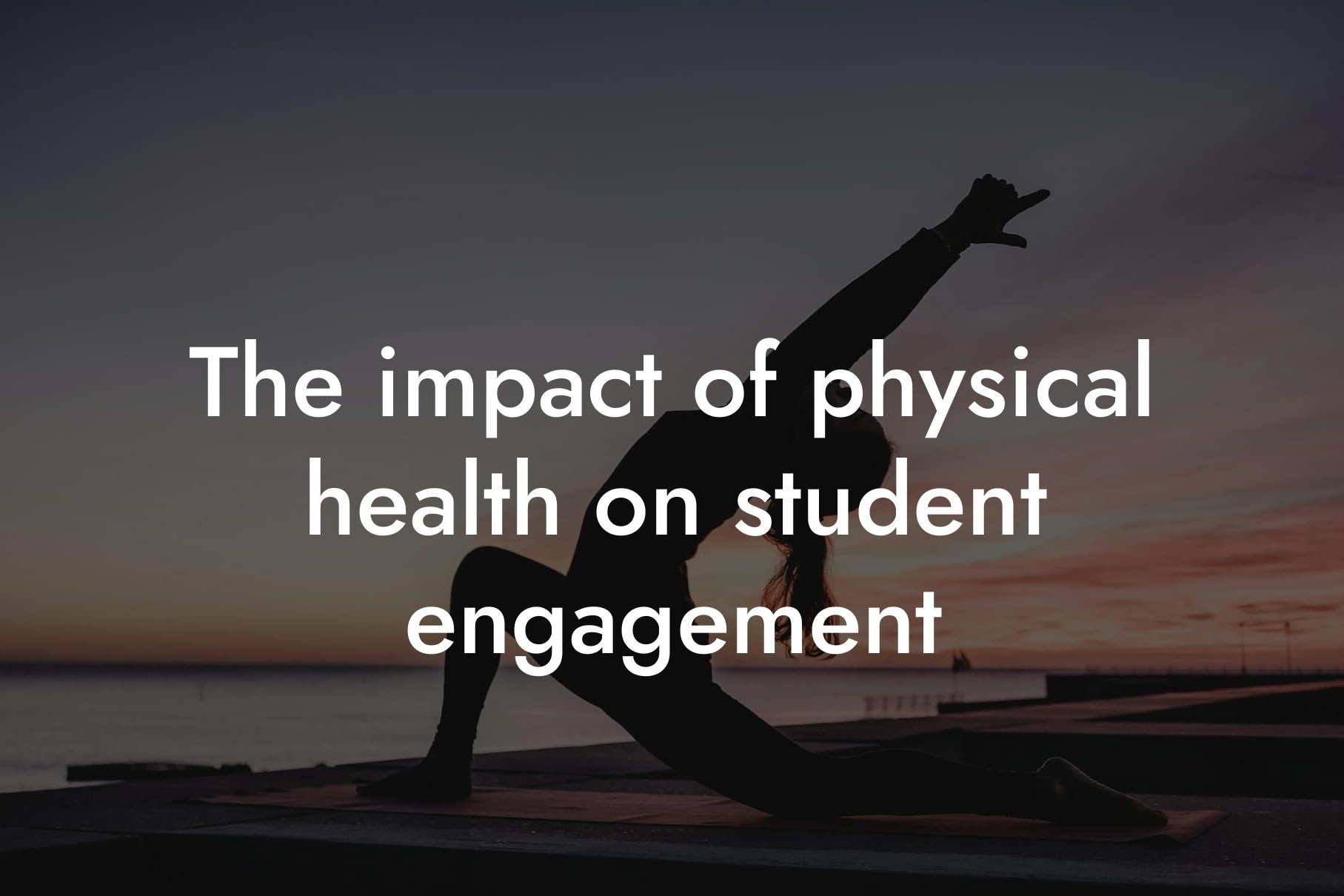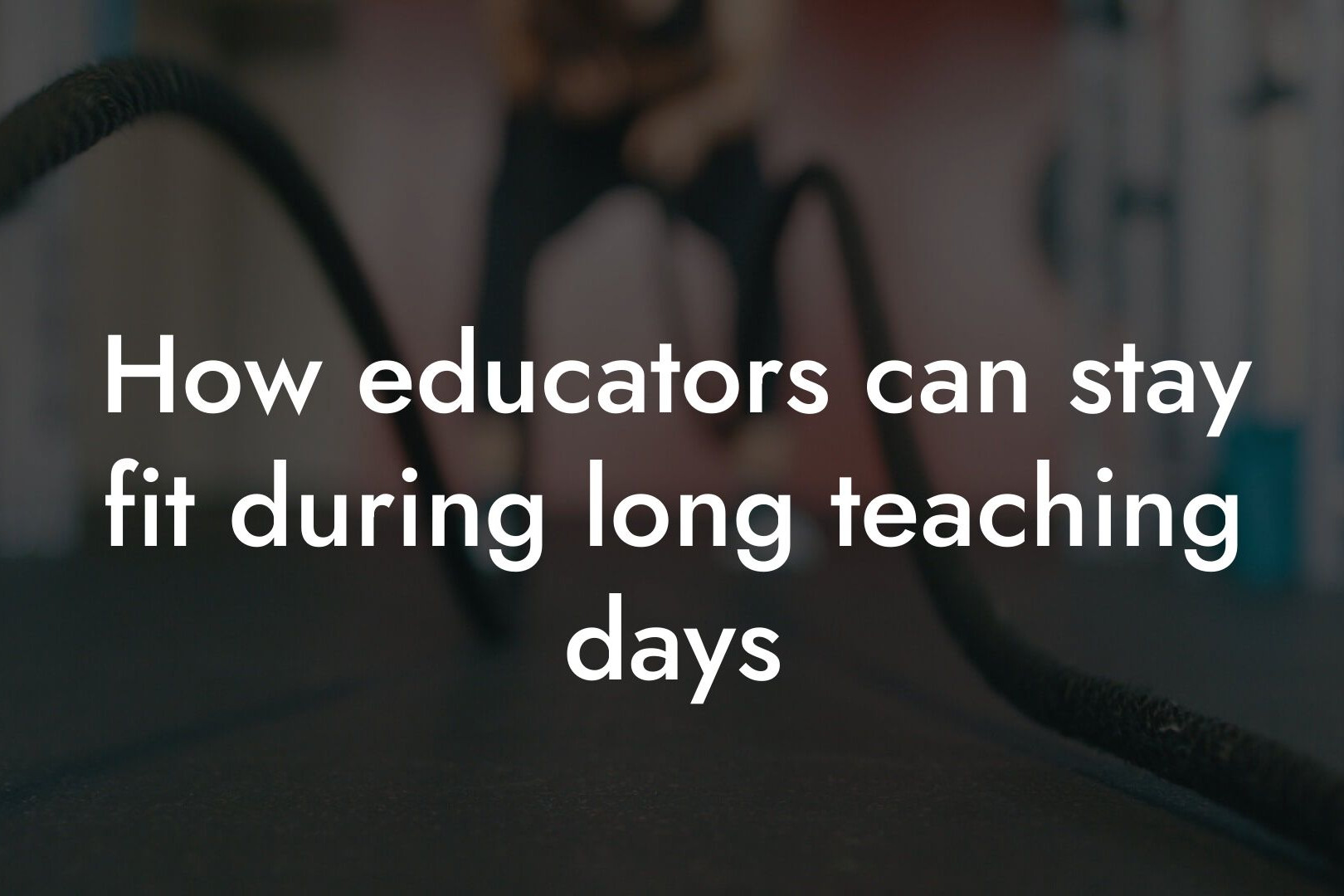As a high-earning professional, you understand the importance of maintaining peak energy levels to stay focused and productive throughout the day. Whether you're attending lectures, meetings, or working on projects, having the right nutrition can make all the difference. At Tano Performance Group, we're committed to helping you achieve your physical and professional goals. In this article, we'll provide you with expert nutrition tips to help you maintain energy during lectures and stay ahead of the game.
Table of Contents
- The Importance of Nutrition for Energy
- Hydration: The Key to Energy
- Complex Carbohydrates: The Energy-Boosting Superfood
- Protein: The Building Block of Energy
- Healthy Fats: The Energy-Boosting Powerhouse
- Snacking Strategies for Energy
- Meal Timing for Optimal Energy
- Supplements for Energy
- Frequently Asked Questions
The Importance of Nutrition for Energy
Nutrition plays a crucial role in energy production. The food you eat is broken down into macronutrients such as carbohydrates, proteins, and fats, which are then converted into energy. A well-balanced diet that includes the right mix of macronutrients can help you maintain optimal energy levels throughout the day. On the other hand, a diet that is high in processed foods, sugar, and unhealthy fats can lead to energy crashes and decreased productivity.
Hydration: The Key to Energy
Hydration is often overlooked, but it's essential for maintaining energy levels. Even mild dehydration can cause fatigue, headaches, and decreased focus. Aim to drink at least 8-10 glasses of water per day, and make sure to bring a refillable water bottle with you to lectures. You can also consume hydrating foods such as watermelon, cucumbers, and celery to help you stay energized.
Complex Carbohydrates: The Energy-Boosting Superfood
Complex carbohydrates such as whole grains, fruits, and vegetables are rich in fiber, vitamins, and minerals that help to sustain energy levels. They're also digested slowly, providing a steady release of energy throughout the day. Include complex carbohydrates such as brown rice, quinoa, whole wheat bread, and leafy greens in your diet to maintain optimal energy levels.
Protein: The Building Block of Energy
Protein is essential for energy production, as it helps to build and repair cells. Include protein-rich foods such as lean meats, fish, eggs, dairy, and legumes in your diet to maintain energy levels. Aim to consume 0.8-1 gram of protein per kilogram of body weight per day, spread out over 3-5 main meals and 2-3 snacks.
Healthy Fats: The Energy-Boosting Powerhouse
Healthy fats such as nuts, seeds, avocados, and olive oil are rich in energy-boosting nutrients such as omega-3 fatty acids and antioxidants. They're also digested slowly, providing a sustained release of energy throughout the day. Include healthy fats in your diet to maintain optimal energy levels and support overall health.
Snacking Strategies for Energy
Snacking can help to maintain energy levels throughout the day, but it's essential to choose the right snacks. Aim for snacks that are rich in complex carbohydrates, protein, and healthy fats, such as fruits, nuts, and energy bars. Avoid sugary snacks and drinks that can cause energy crashes and decreased productivity.
Meal Timing for Optimal Energy
Meal timing can also impact energy levels. Aim to eat a balanced meal or snack every 3-4 hours to maintain optimal energy levels. Avoid eating heavy meals before lectures, as they can cause energy crashes and decreased focus. Instead, opt for light, balanced meals or snacks that include complex carbohydrates, protein, and healthy fats.
Supplements for Energy
While a well-balanced diet can provide all the necessary nutrients for energy production, supplements can also play a role. Consider adding energy-boosting supplements such as vitamin D, iron, and adaptogenic herbs like ashwagandha and rhodiola to your diet. However, always consult with a healthcare professional before adding any new supplements to your routine.
Maintaining energy levels during lectures requires a combination of the right nutrition, hydration, and lifestyle habits. By incorporating the tips outlined in this article, you can optimize your energy levels and stay focused and productive throughout the day. Remember to prioritize complex carbohydrates, protein, and healthy fats, and stay hydrated by drinking plenty of water. With the right nutrition and habits, you can achieve your goals and take your business to the next level.
At Tano Performance Group, we're committed to helping you achieve your physical and professional goals. Our DEXA machine provides a complete body assessment, giving you the information you need to optimize your nutrition and training. Contact us today to learn more about how we can help you achieve peak performance.
Frequently Asked Questions
What are the most common energy-boosting foods for lectures?
As a high-earning professional, you want to stay focused and alert during lectures. Some of the most common energy-boosting foods that can help you achieve this include nuts, seeds, fruits, and vegetables. These foods are rich in fiber, protein, and complex carbohydrates that provide a slow and steady release of energy. Some specific examples include bananas, apples, carrots, and almonds.
How can I stay hydrated during long lectures?
Staying hydrated is crucial for maintaining energy levels during lectures. Aim to drink at least 8-10 glasses of water per day, and make sure to bring a refillable water bottle with you to class. Avoid sugary drinks and caffeine, as they can lead to energy crashes later on. You can also consider bringing coconut water or herbal tea to class for an extra boost of hydration.
What are some healthy snack options for lectures?
Healthy snacking is essential for maintaining energy levels during lectures. Some healthy snack options include energy bars, trail mix, and dried fruits. Look for snacks that are low in added sugars, salt, and unhealthy fats. You can also consider bringing your own snacks to class, such as cut veggies and hummus or energy balls made with oats and nuts.
How can I avoid energy crashes during lectures?
Energy crashes can be debilitating during lectures. To avoid them, make sure to eat a balanced meal or snack before class, and avoid consuming too much sugar or caffeine. Also, try to get some fresh air and take short breaks during class to stretch and move around. This can help increase oxygen flow to your brain and reduce fatigue.
What are some natural energy-boosting supplements for lectures?
As a high-earning professional, you may be looking for natural energy-boosting supplements to help you stay focused during lectures. Some options include vitamin B12, iron, and adaptogenic herbs like ashwagandha and rhodiola. However, always consult with a healthcare professional before adding any new supplements to your routine.
How can I prioritize self-care during lectures?
Prioritizing self-care is essential for maintaining energy levels during lectures. Make sure to get enough sleep before class, and try to establish a relaxing bedtime routine to improve sleep quality. Also, take breaks during class to stretch, move around, and practice deep breathing exercises. This can help reduce stress and increase focus.
What are some common energy-draining foods to avoid during lectures?
Some foods can actually drain your energy levels during lectures. These include foods high in added sugars, salt, and unhealthy fats. Examples include donuts, chips, and energy drinks. Try to avoid these foods before and during class, and opt for nutrient-dense options instead.
How can I stay focused during long lectures?
Staying focused during long lectures can be challenging. To stay engaged, try to set small goals for yourself during class, such as taking notes or summarizing key points. Also, try to find ways to make the material more engaging, such as creating concept maps or diagrams. Finally, take breaks during class to stretch and move around, which can help increase oxygen flow to your brain.
What are some benefits of maintaining energy during lectures?
Maintaining energy during lectures has several benefits. These include improved focus and concentration, better retention of information, and increased productivity. Additionally, maintaining energy levels can help reduce stress and anxiety, leading to a more positive and enjoyable learning experience.
How can I incorporate physical activity into my lecture routine?
Incorporating physical activity into your lecture routine can help increase energy levels and improve focus. Try to take short breaks during class to stretch, move around, or do a few jumping jacks. You can also consider taking a walk or doing some light exercise before class to get your blood flowing.
What are some healthy meal options for before lectures?
Eating a healthy meal before lectures can help provide a boost of energy and focus. Some healthy meal options include oatmeal with fruit and nuts, scrambled eggs with whole-grain toast, or a smoothie bowl with spinach, banana, and almond milk. Aim for meals that are high in complex carbohydrates, protein, and healthy fats.
How can I manage stress and anxiety during lectures?
Managing stress and anxiety during lectures is crucial for maintaining energy levels. Try to take deep breaths, practice progressive muscle relaxation, or use positive self-talk to calm your nerves. You can also consider bringing a stress ball or fidget toy to class to help release tension.
What are some benefits of a balanced diet for energy during lectures?
A balanced diet is essential for maintaining energy levels during lectures. A diet that is high in whole foods, fruits, vegetables, and lean protein can provide a slow and steady release of energy, reducing the risk of energy crashes and improving focus and concentration.
How can I stay energized during late-night study sessions?
Staying energized during late-night study sessions can be challenging. To stay awake and focused, try to take breaks every hour to stretch, move around, and get some fresh air. Also, avoid consuming too much caffeine or sugar, and opt for healthy snacks like nuts, seeds, and dried fruits instead.
What are some common energy-boosting myths to avoid during lectures?
There are several energy-boosting myths to avoid during lectures. These include the idea that energy drinks can provide a sustainable energy boost, or that consuming large amounts of sugar can provide a quick energy fix. Instead, focus on making healthy lifestyle choices, such as getting enough sleep, eating a balanced diet, and staying hydrated.
How can I prioritize sleep before lectures?
Prioritizing sleep before lectures is essential for maintaining energy levels. Aim to get at least 7-9 hours of sleep per night, and establish a relaxing bedtime routine to improve sleep quality. Avoid screens and electronic devices before bed, and try to create a dark, quiet sleep environment.
What are some healthy beverage options for lectures?
Staying hydrated is crucial for maintaining energy levels during lectures. Some healthy beverage options include water, coconut water, and herbal tea. Avoid sugary drinks and energy drinks, which can lead to energy crashes and decreased focus.
How can I incorporate mindfulness into my lecture routine?
Incorporating mindfulness into your lecture routine can help reduce stress and anxiety, leading to increased energy and focus. Try to take a few minutes before class to practice deep breathing exercises, meditation, or yoga. You can also consider bringing a mindfulness journal to class to reflect on your thoughts and feelings.
What are some benefits of staying hydrated during lectures?
Staying hydrated during lectures has several benefits. These include improved focus and concentration, increased energy levels, and better retention of information. Additionally, staying hydrated can help reduce headaches and fatigue, leading to a more positive and enjoyable learning experience.
How can I stay energized during long commutes to lectures?
Staying energized during long commutes to lectures can be challenging. To stay awake and focused, try to get some fresh air, listen to music or podcasts, or do some light stretching exercises. You can also consider bringing a healthy snack or beverage with you to keep your energy levels up.
What are some common energy-draining habits to avoid during lectures?
There are several energy-draining habits to avoid during lectures. These include skipping meals, staying up late to study, and consuming too much caffeine or sugar. Instead, focus on making healthy lifestyle choices, such as getting enough sleep, eating a balanced diet, and staying hydrated.
How can I stay motivated during long lectures?
Staying motivated during long lectures can be challenging. To stay engaged, try to set small goals for yourself during class, such as taking notes or summarizing key points. Also, try to find ways to make the material more engaging, such as creating concept maps or diagrams. Finally, reward yourself after class with a healthy snack or activity to stay motivated.
Here are some related articles you might love...
- The impact of physical health on student engagement
- How DEXA scans can benefit education professionals
- How educators can stay fit during long teaching days
- The role of physical fitness in classroom management
- Balancing grading and lesson planning with personal fitness
- Managing stress through physical fitness in teaching
- Quick workouts for educators during breaks
- How to stay active in a sedentary teaching job
- The connection between fitness and effective teaching
Zak Faulkner
Zak Faulkner is a leading authority in the realm of physical health and body composition analysis, with over 15 years of experience helping professionals optimise their fitness and well-being. As one the experts behind Tano Performance Group, Zak has dedicated his career to providing in-depth, science-backed insights that empower clients to elevate their physical performance and overall health.
With extensive knowledge of DEXA technology, Zak specializes in delivering comprehensive body assessments that offer precise data on body fat, muscle mass, bone density, and overall physique. His expertise enables individuals to make informed decisions and achieve their fitness goals with accuracy and confidence. Zak’s approach is rooted in a deep understanding of human physiology, combined with a passion for helping clients unlock their full potential through personalised strategies.
Over the years, Zak has earned a reputation for his commitment to excellence, precision, and client-focused service. His guidance is trusted by top professionals who demand the best when it comes to their health. Whether advising on fitness programs, nutritional strategies, or long-term wellness plans, Zak Faulkner’s insights are a valuable resource for anyone serious about taking their health and fitness to the next level.
At Tano Performance Group, Zak continues to lead our Content Team revolutionising how professionals approach their physical health, offering unparalleled expertise that drives real results.




